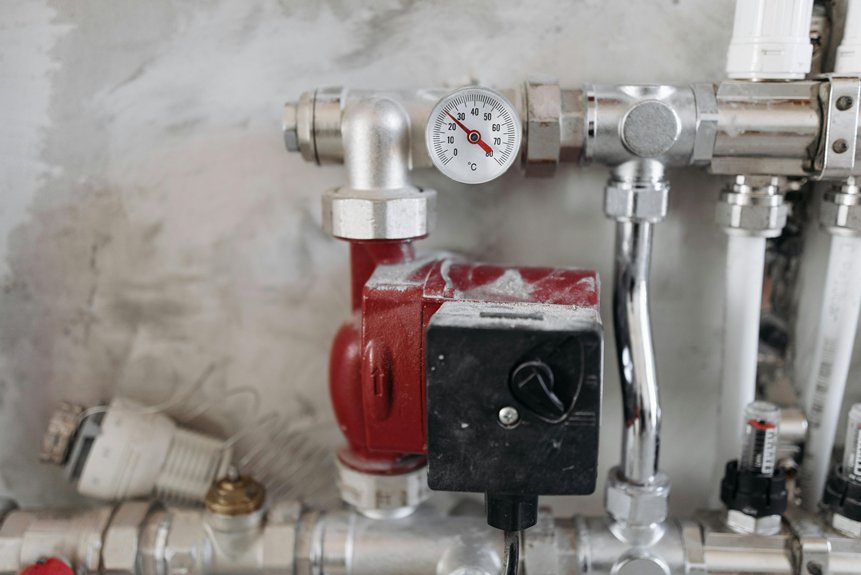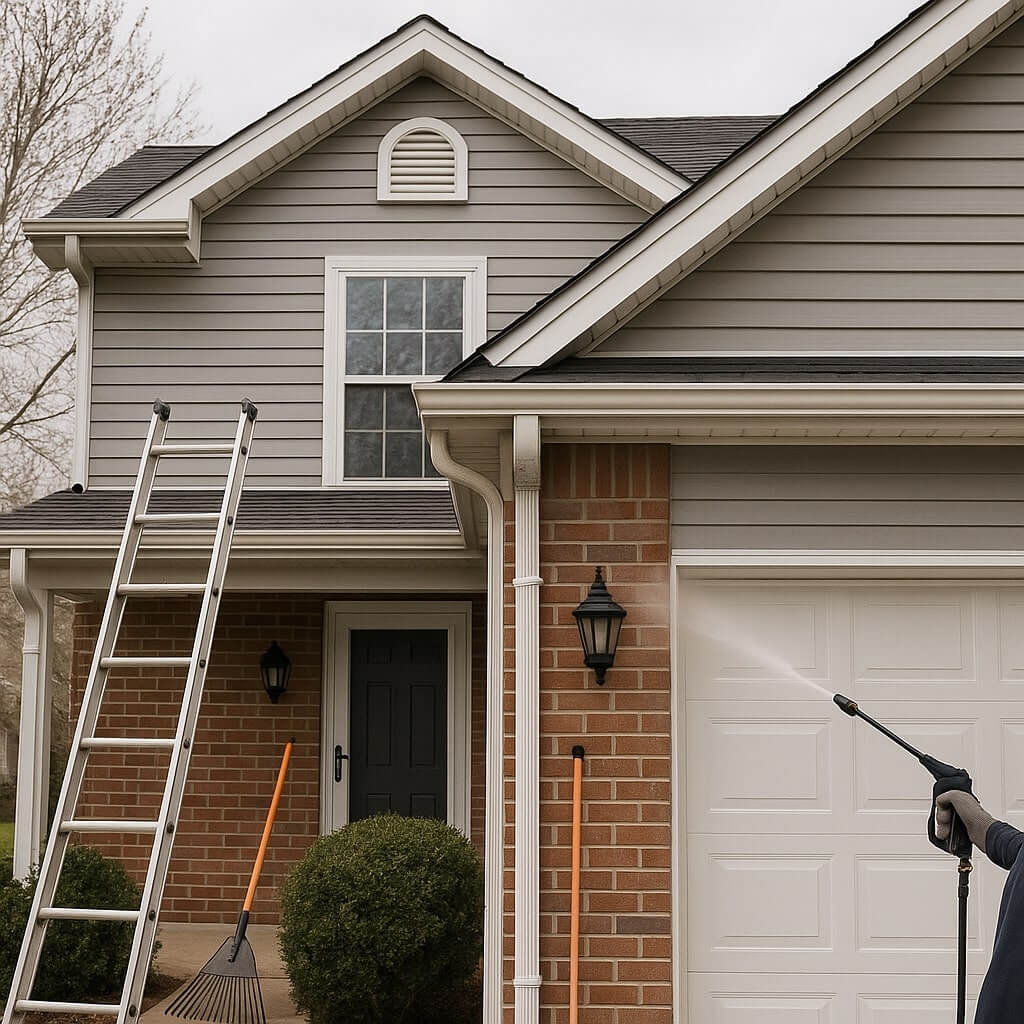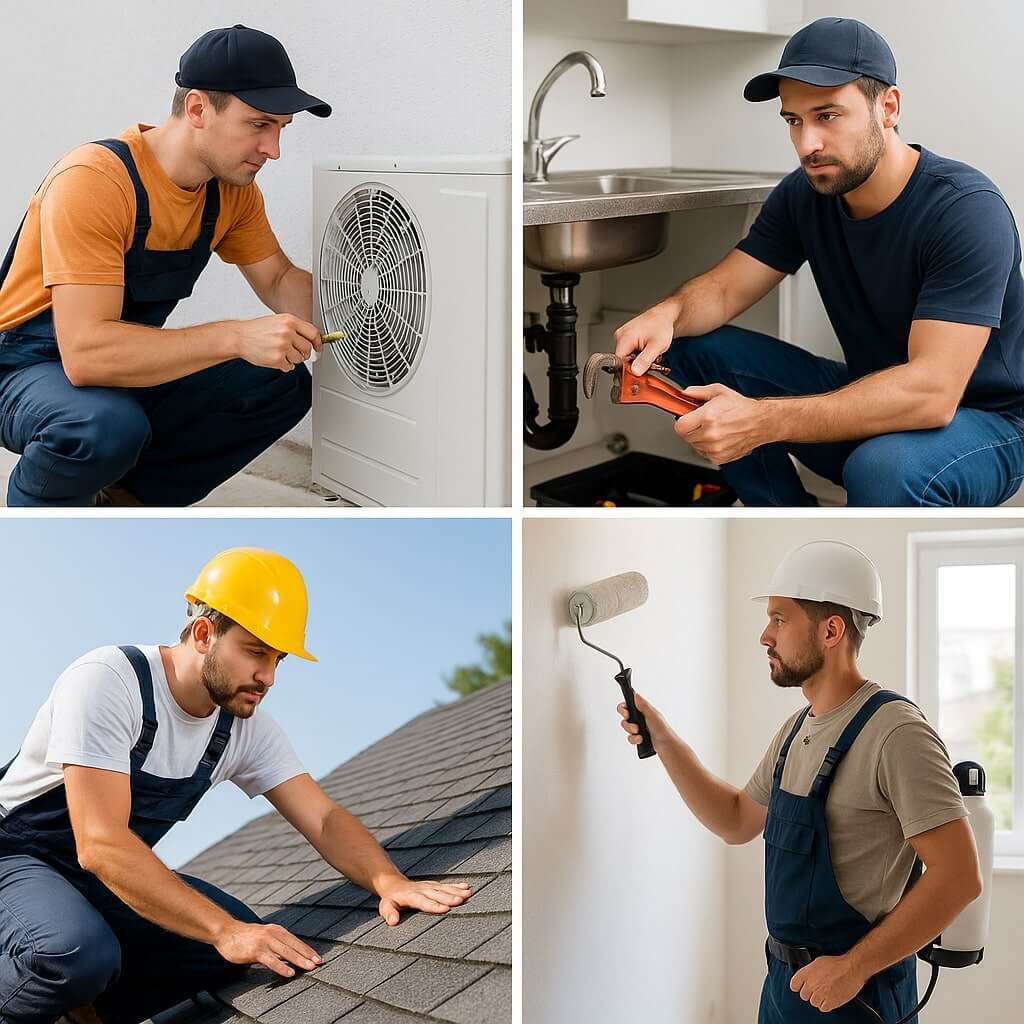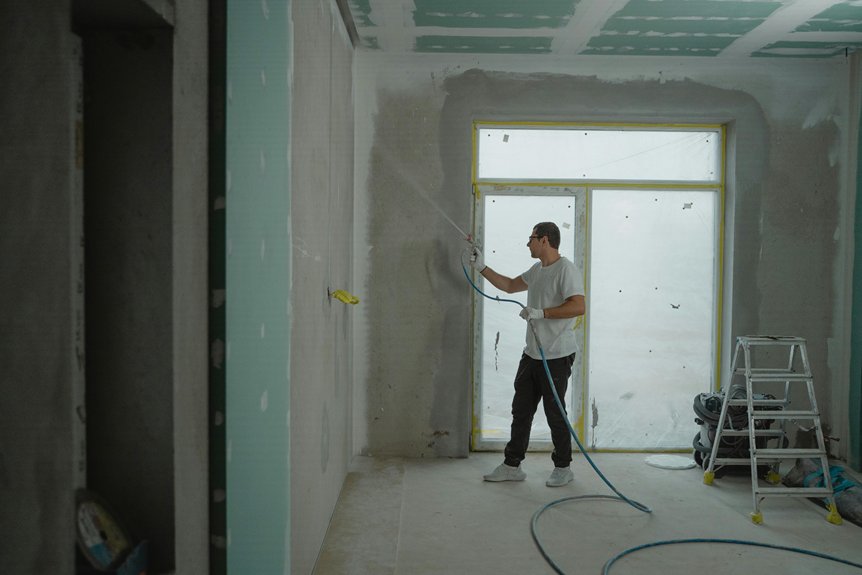Maintaining your home boiler is vital for efficient operation and safety. You should schedule annual inspections to catch potential issues early. Regularly bleeding your radiators can improve heating efficiency, while monitoring for signs of wear and tear can prevent costly repairs. By following these essential tips, you can prolong your boiler’s lifespan and enhance its energy efficiency. However, there are specific methods and schedules you need to take into account to maximize these benefits.
Key Takeaways
- Schedule annual inspections to identify issues early and ensure safety checks on boiler components.
- Bleed radiators regularly to remove trapped air and maintain efficient heating performance.
- Monitor for leaks, corrosion, and unusual noises to address potential problems before they escalate.
- Keep an eye on the pressure gauge, ensuring it stays within the optimal range of 1 to 1.5 bar.
- Perform regular maintenance to optimize energy efficiency and reduce heating costs throughout the year.
Regular Inspections and Servicing

Regular inspections and servicing are essential for maintaining your home boiler’s efficiency and safety. Scheduling annual check-ups allows you to identify potential issues before they escalate.
During these inspections, technicians perform critical safety checks, ensuring components like pressure relief valves and flue systems function correctly. They also clean and assess the burner and heat exchanger, which directly impacts boiler efficiency.
By addressing wear and tear timely, you not only prolong your boiler’s lifespan but also optimize energy consumption. Prioritizing these routine maintenance tasks safeguards your home’s heating system, ensuring reliable performance throughout the colder months.
Don’t overlook this crucial aspect of home care.
Bleed Radiators and Check Pressure
After guaranteeing your boiler has been properly serviced, it’s important to focus on the radiators as part of your maintenance routine.
Start by bleeding your radiators to remove trapped air, which can hinder efficiency. Use a radiator key to open the bleed valve, allowing air to escape until water flows steadily.
Bleed your radiators using a radiator key to release trapped air for optimal heating efficiency.
Next, check the pressure gauge on your boiler; the perfect pressure is typically between 1 and 1.5 bar. If pressure is low, you may need to add water to the system to achieve proper radiator balancing.
Regularly performing these tasks guarantees peak heating performance and energy efficiency.
Monitor for Signs of Wear and Tear

While maintaining your boiler, you should closely monitor for signs of wear and tear that could indicate potential issues. Regular leak detection and corrosion assessment are essential for your boiler’s longevity. Watch for rust, unusual noises, or moisture around connections. Document any findings in the table below to track changes over time.
| Issue | Signs | Action Required |
|---|---|---|
| Leak | Water pooling | Repair or replace parts |
| Corrosion | Rust or flaking surfaces | Clean and treat |
| Noise | Unusual sounds | Inspect components |
| Pressure drop | Low pressure readings | Check for leaks |
| Overheating | Excessive temperature | Assess system efficiency |
Conclusion
By following these three essential tips for boiler maintenance, you can guarantee your system operates efficiently and safely. Regular inspections help catch potential issues early, while bleeding your radiators keeps your heating system running smoothly. Additionally, staying vigilant for signs of wear and tear allows you to address problems before they escalate. Implementing these practices not only prolongs your boiler’s lifespan but also enhances energy efficiency, saving you money in the long run. Keep your home warm and safe!




